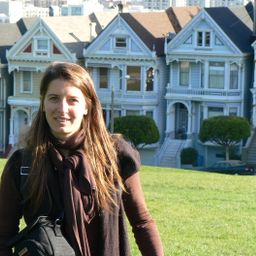
Dr Celia Forget
Sessions in which Dr Celia Forget attends
Saturday 4 June, 2016
What if we changed our views on heritage? And if heritage has already changed? While, on the global scene, states maintain their leading role in the mobilization of social and territorial histories, on the local scale, regions, neighbourhoods and parishes have changed. Citizens and communities too: they latch on to heritage to express an unprecedented range of belongings that no law seems to be able to take measures to contain, often to the discontent of...
Le 19e siècle aura été celui de l’invention européenne des monuments, historiques et de nature. Le 20e, plus spécifiquement sans sa seconde moitié, aura été celui du patrimoine, en particulier dans sa version mondiale, telle que soutenue par les États-Unis des années 1970. Or, en ce début de 21e siècle, de nouvelles formes de mobilisations mémorielles émergent: de la rue Champlain de Québec au quartier Xintiandi de Shanghai, de Bercy-Village à Paris à South Bank de Londres, ou bien encore aux...
Much is being made of the perceived breakdown of the nation-state, which was historically configured as a “container” of heritage formations, adopting and perusing local traditions where possible but oppressing them where deemed unsuitable. Migration is seen as eroding the rigid boundaries of this configuration, potentially liberating identities and heritages in the process. This session addresses the relationship between critical heritage and redefinitions of self, other, community and place...
Dans le cadre de cette session, nous souhaitons faire, dans une perspective multidisciplinaire et critique, un état des lieux qui interroge doublement, à la lumière de trois axes que sont la narrativité, la temporalité et la performativité, la patrimonialisation des sujets sensibles tant sur ses rôles, ses formes et ses effets sur les sociétés qui les entreprennent, que sur sa fonction révélatrice d’un monde en changement. L’espace public laisse une place grandissante aux objets, aux li...
The contemporary movement of heritagization, characterized by a multiple expansion (typological, chronological, spatial) of heritage and of heritage producers (local actors, inhabitants, social groups, national states, international players), nourishes also the production of alternative heritage. By this expression, we wish to focus on non-institutional, dissonant, under-recognized heritage, located on the “pioneer front” of contemporary heritage production. Alter-heritage represents, therefo...
Sunday 5 June, 2016
Much is being made of the perceived breakdown of the nation-state, which was historically configured as a “container” of heritage formations, adopting and perusing local traditions where possible but oppressing them where deemed unsuitable. Migration is seen as eroding the rigid boundaries of this configuration, potentially liberating identities and heritages in the process. This session addresses the relationship between critical heritage and redefinitions of self, other, community and place...
Tuesday 7 June, 2016
We would like to propose a session, building on the one we ran at the 2014 CHS conference in Canberra, on how emotion and affect feature in the fields of heritage and museums studies, memory studies, public history, heritage tourism, studies of the built and urban environment, conservation, archives and any field of study that deals with the emotional impact and use of the past in the present. There is an increasing interest in how emotion is a form of judgement on things that affect ou...
Photography was recognized as an instrument of heritage preservation from the moment of its inception in the early nineteenth century, when projects such as Les Excursions Daguerriennes (1841-1843), a set of Romantic engravings of monuments based on photographic documents, established the links between sight and science, memory and history, hortatory reification and ‘ruin lust’ (Brian Dillon, 2014). This session was conceived in the certain knowledge that almost every speaker at t...
Si la ville moderne occidentale se transforme, sous l'action des aménageurs, en écho à des utopies, des programmes de développement et des intérêts économiques, on néglige trop souvent l'action quotidienne d'habitants et d'acteurs sociaux qui s'approprient les lieux et contribuent à les transformer. Dans cette mutation de la ville, le patrimoine se trouve à la croisée d'enjeux économiques et sociaux singuliers: d'une part il est convoqué par les aménageurs et les acteurs de la gentrification ...
This session proposes a critical and epistemological reflection on sustainable urban heritage conservation. Recent research on the management of urban heritage following its conservation process is characterized by a growing number of studies that aim to provide an overview of how to assess the sustainability of existing practices. This dominant focus of the research has contributed to the development of indicators and approaches to sustainable development in this field. In addition, it has a...
Canada is often pictured as vast territory of wilderness and wide-open spaces. Yet most of Canadian life plays out in interior spaces. These spaces dominate our daily life, frame memories, and can hold the traces of our histories. Interiors are also particularly challenging spaces for traditional heritage policy, as they are notoriously fluid, changing, and ever evolving to meet new needs and desires. Compounding the problem, the ‘designers’ of interiors—interior decorators and interior de...

